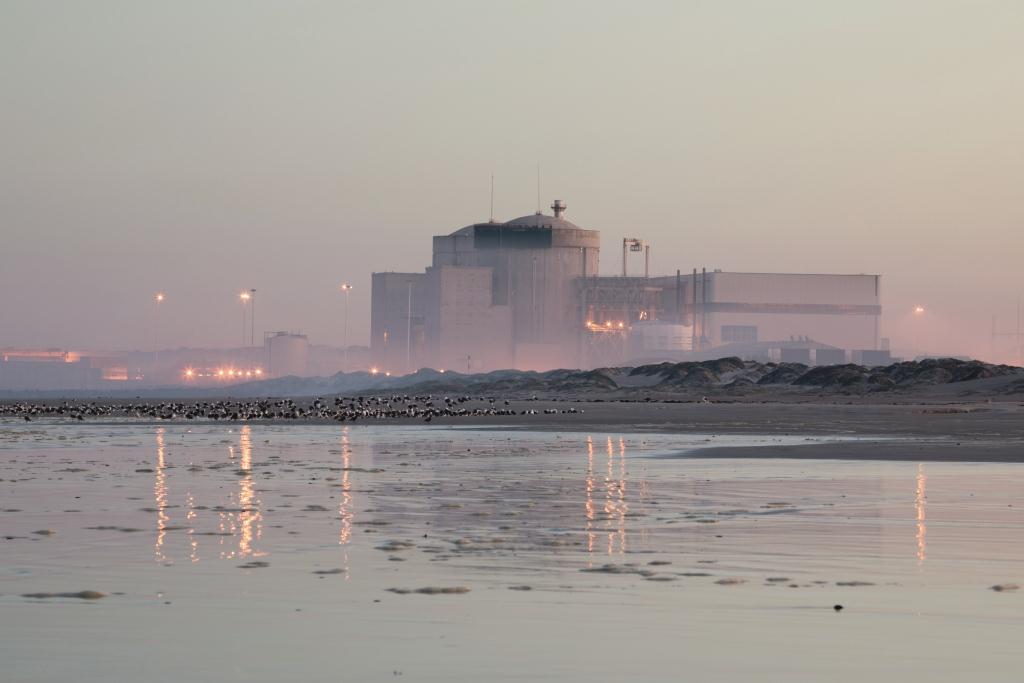It was David and Goliath. With sling shot in hand, two tiny human rights groups, Earthlife Africa Johannesburg (ELA) and the Southern African Faith Communities’ Environment Institute (SAFCEI), stood in the way of the Goliath that is the deal to build nuclear that could cost more than a R1 trillion ($73 billion).
It was a court battle that raged for a year and a half. On April 26, the ELA and SAFCEI lawyers stood face-to-face with government counsel in the Western Cape High Court, Cape Town. The ELA and SAFCEI disputed the costly procurement process, saying it was illegal and nontransparent.
On this day, Goliath crumpled and activists danced and sang in victory on the sidewalk outside the court. The celebration was blessed by a downpour in this drought-ridden city.
Judge Lee Bozalek declared the South African government’s nuclear deal to be unlawful and unconstitutional. Most important was the scrapping of secret intergovernmental agreements with Russia, the United States and South Korea, which the activists argued was the right of the public to know.
“Victory for justice and the rule of law and the people of South Africa,” says Makoma Lekalakala, ELA branch coordinator.
Loading...
Other key decisions made by government were found to be illegal, including its decision to hand over procurement of nuclear to Eskom, South Africa’s state power utility, rather than the National Energy Regulator of South Africa.
“All the information that people have been requiring on affordability etc. must come into the public realm. We need to know exactly what is going on with the deal and it needs to happen in a transparent and open process as the government has repeatedly said it would do, but keep not doing,” says Adrian Pole, lawyer for SAFCEI and ELA.

Koeberg Nuclear Power Station
It means back to the drawing board for nuclear energy in South Africa. From now on any nuclear proposals will need to be passed in Parliament and opened up to the public, which could take years.
“It’s been a long hard struggle. We are only two small organizations but this is really a victory for democracy. It means the people of South Africa can now participate in their future. There is no more nuclear deal, there is no more Russian agreement. Parliament has to step up. If the president wants to push any more deals it has to go through Parliament properly and any idea we might go nuclear is off the table,” says Liz McDaid, SAFCEI spokesperson.
McDaid has more reason to celebrate than most. She was there from day one, when the human rights groups announced they would take down the deal in court from a small room in a backstreet office with a handful of journalists in Newtown, Johannesburg.
Another organization standing against the deal is the Organization Undoing Tax Abuse (OUTA). Ted Blom, OUTA’s Energy Portfolio Director, believes the expense alone could have crippled the country.
“We are tired of government’s approach that runs roughshod over the need for meaningful public engagement and due process. The pro-nuclear lobbyists and government officials arrogantly ignore their need to be accountable and to provide detailed explanations to the public on why we need new nuclear plants, or what the true costs of these will be,” adds Wayne Duvenage, OUTA Chairperson.
Studies showed the nuclear deal to be unaffordable, despite what government believes, argues David Fig, a Political Economist and Honorary Research Associate at the University of Cape Town. He notes that the Council for Scientific and Industrial Research (CSIR) developed models showing that new nuclear is likely to be much more expensive than coal or renewable energy.
“The price ticket for nuclear – which some estimates put at more than R1 trillion – doesn’t take into account the costs of operation, fuel, insurance, emergency planning or the regulation or decontamination at the end of the life of the reactors,” he writes in The Conversation.
The nuclear deal, overseen by South Africa’s President Jacob Zuma, is also muddied by allegations of corruption, according to Fig.
“A more likely reason for Zuma’s zeal is the involvement of the Gupta family with whom he has close ties. The family’s web of interests around the nuclear deal is complex. What is known is that the Gupta family controls South Africa’s only dedicated uranium mine. The family has developed close relationships with key individuals at Eskom,” says Fig.
On the other side of the argument, there is a claim the ruling is an overstatement. Kelvin Kemm, Chairperson of the South African Nuclear Energy Corporation (Necsa), called for caution when interpreting it. The nuclear physicist argues that the court ruled on an administrative process, not on the wisdom of nuclear power.
“A false impression has been created that this judgment is anti-nuclear. It is not and comment to that effect is premature and regrettable,” says Kemm.
“One positive aspect of this ruling is that it presents the opportunity for the facts and truth to be fully aired and debated so that rational people can think and decide on realities not hearsay. The anti-nuke lobby has had the platform to themselves, not least because the nuclear industry has been quiet. This will change. Necsa and the nuclear industry intend to step up efforts to put the facts before the court of public opinion and to present a balanced and evidence-based case for nuclear energy as the right energy option for South Africa.”
“The nuclear industry in South Africa operates to the highest global business and ethical standards and applies world best practice to planning and operational procedures. To suggest that those working within it adhere to anything less is at best inaccurate and a great disservice to a highly professional body of experts.”
Government says it will look over the judgment before it decides whether to appeal.
The battle over nuclear is far from over, but the victors are likely to redouble their campaign after they have dried off from their dance in the rain.
Loading...
